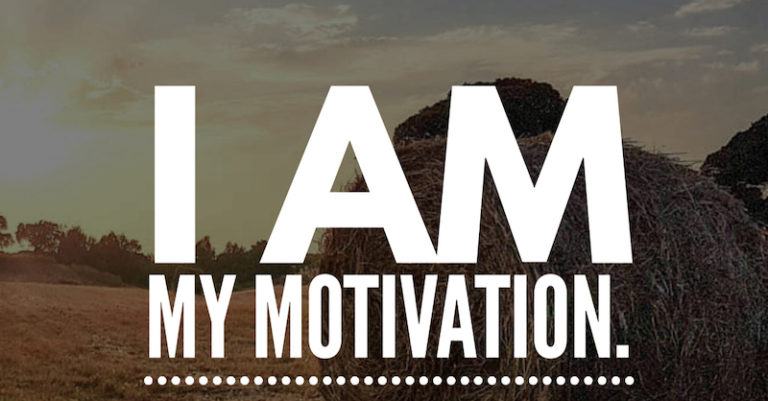How Writers Can Avoid Procrastination, Find Discipline, and Jumpstart Motivation

How can writers avoid procrastination and find the necessary discipline and motivation to keep writing?
It's hard being a writer. The art, craft, and business of writing takes time, focus, and significant efforts to conjure, organize, and visual characters and stories and then interpret those visuals into written words that readers can envision.
And in the world we live in today, it's very easy to procrastinate. Our lives are full of distractions.
Social media feed is endless, and it ends up being a true time-sucker. We feel the need to keep up with our family, friends, and peers on Facebook. We feel behind if we're not caught up on the latest news and gossip on Twitter. We don't want to miss out on the latest celebrity and influencer pictures on Instagram. And Pinterest has an endless array of recipes and life hacks that peak our interests.

Before we know it, a couple of hours has passed and now it's lunch-time. Or maybe our evening social media catch-up has eaten up our nights and it's suddenly time for bed so we can rest up for the next day — more of the same.
And don't forget about all of those movies and TV shows.
With the multiple streaming platforms, there is an endless list of must-see TV and movies. We don't want to be left behind on the latest twists and turns as our friends and co-workers are dying to discuss the latest from X show or X movie.

And since our lives are so packed with work and family duties, it's difficult to get a good meal in as much as we'd like. We're forced to eat on the run or settle for simple processed foods packed full of sugar, sodium, and fat. This weighs us down both physically and mentally, complete with energy crashes.

Our bodies pay the price too, causing weight gain or energy loss that can lead to psychological breakdowns and self-shaming.
And yes, while most people deal with this throughout their lives, writers struggle even more because the time, focus, and significant efforts (energy) that it takes to write are hard to come by.
Sound familiar?
Discipline vs. Motivation
Writers are taught that discipline is the key to success — even more so than motivation.
Medium's article What To Do When You Feel Unmotivated talks about Power versus Force in relation to Discipline versus Motivation.
It first points to the fact that writers are told that discipline is far more important than motivation. While being disciplined is vital to the success of writers, motivation is just as important.
The article then states:
Where forcing yourself to do the work is like swimming against the current, getting yourself motivated to do the work is like swimming with the current. Both will result in getting the job done, but with a completely different mood and perspective.
For the first approach, you’ll need to use a lot of force in order to get to your desired destination. For the second approach, you’ll make use of power in order to get to your desired destination.
When you are focusing solely on discipline to get you writing, you're forcing yourself to swim against everything that is keeping you from being productive — every example of procrastination listed above, including the repercussions of sleeping in late or going to bed early because you're body and mind are so tired.
Motivation is what gets you not just wanting to write, but needing to. That is the whole concept behind swimming with the current.
Discipline forces you to fight through the walls that life has subjected you to (work, family responsibilities, social responsibilities, health, etc.). Motivation is what lifts you through those broken walls. Thus, both discipline and motivation are necessary for every writer.
Learn how to train yourself to be ready for screenwriting success with this free guide.
Get Into the Right Mindset
To find the focus, time, and energy to write, you need to develop ways to get yourself into the right mindset to write. And this is about marrying the concepts of discipline and motivation.
The first step is finding the discipline to locate a time and place to write. That means you'll be forced to use power to break through your scheduling and time management issues.
You'll have to make the necessary sacrifices in your schedule to carve out the time you need to write. This may be forgoing social media feed scrolls in the morning after you get up or at night before bed — or missing out on a show, social outing, or regular leisure time.

But that won't be enough. You need to have the discipline to find some more time throughout your day, week, or month. And it's perfectly fine if you can't write every single day. You just need to get on a regular schedule, even if that means writing occurs only on Mondays, Wednesdays, and Fridays, or whatever variance — there's no single answer because everyone's schedule demands are different.

After you've disciplined yourself to schedule time to write, motivation then needs to be jump-started. You need to get into the right mindset with the time you've now allocated to writing.
Because of all of the setbacks in life mentioned above — those procrastination habits — your body and mind are going to need a jump. And the only way that you can do that is changing your body and changing your mind.
For your body, you can:
- Exercise. Whether it's a daily walk, run, bike ride, weightlifting session, swim, or whatever you love to do. And this is mutually beneficial because you're also focusing on your health as well, which feeds into your motivation. And you'd be surprised how much a little fresh air can help.
- Take cold-showers to activate the multiple neurons in your brain. If you procrastinate by feeling the need to sleep in and always hit that snooze button in the morning, force yourself out of bed and jump into the shower. Flip it to the cold setting to jumpstart your system even more.
- Eat healthier food options like fruit that can jumpstart your system.
Changing your physiology positively charges your body. You'll notice the difference quickly — even with the slightest of change. And your body's response will drastically affect your brain as well.

For your mind, you can:
- Visualize your story. Visualization is an essential part of your writing process. In fact, most writing should occur in your mind before you type one single word. Too many writers think that writing is physically typing words onto the screen. Visualization is what gets those creative neurons sparking within your imagination. And that is where most of your motivation will come from because your mind will NEED to get those moments on the page.
- Read self-development and inspirational articles.
- Watch motivational videos.
- Create bullet point lists of the pros and cons of not writing. You'll quickly see that the pros outweigh the cons.
- Meditate
All of these positive efforts for both your body and your mind will get you into the right mindset for writing.

You've broken down the barriers of your schedule through the discipline of finding time and locations to write.
Now you've found the proper motivation, both physical and mental, that will be the driving force which allows you to flow with the current and through those barriers — driven by your desire to do the work and tell your stories.
Ken Miyamoto has worked in the film industry for nearly two decades, most notably as a studio liaison for Sony Studios and then as a script reader and story analyst for Sony Pictures.
He has many studio meetings under his belt as a produced screenwriter, meeting with the likes of Sony, Dreamworks, Universal, Disney, Warner Brothers, as well as many production and management companies. He has had a previous development deal with Lionsgate, as well as multiple writing assignments, including the produced miniseries Blackout, starring Anne Heche, Sean Patrick Flanery, Billy Zane, James Brolin, Haylie Duff, Brian Bloom, Eric La Salle, and Bruce Boxleitner. Follow Ken on Twitter @KenMovies
For all the latest ScreenCraft news and updates, follow us on Twitter, Facebook, and Instagram.
Tags
Get Our Screenwriting Newsletter!
Get weekly writing inspiration delivered to your inbox - including industry news, popular articles, and more!



























